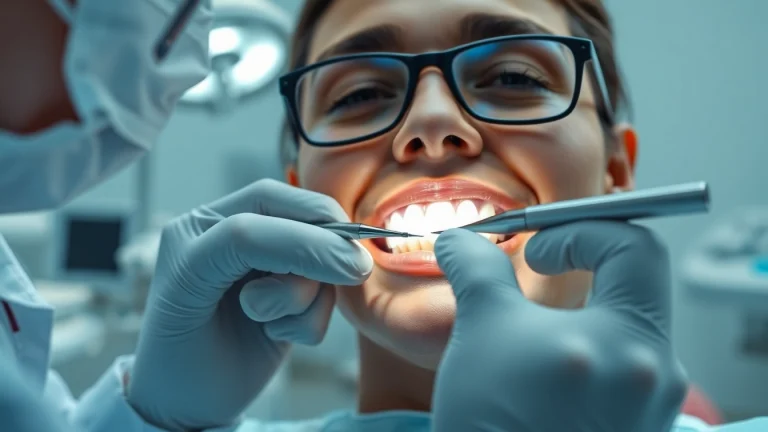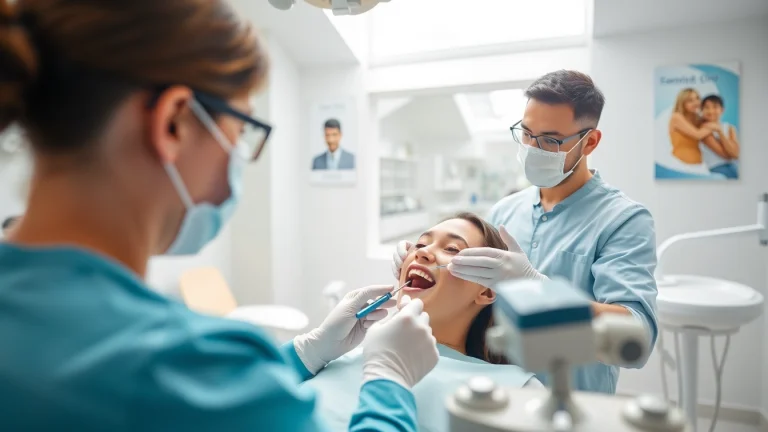
Benefits and Types of Crowns in Modern Dentistry
Understanding Dental Crowns
What are Crowns and Their Purpose?
A dental crown is essentially a tooth-shaped cap that is placed over a tooth to restore its shape, size, strength, and improve its appearance. Crowns are extensively used in dentistry for several critical reasons. Their primary purpose is to provide support to a weak or damaged tooth, which may arise from decay, trauma, or wear. Additionally, crowns play a vital role in covering dental implants and restoring teeth that have undergone root canal treatment.
Crowns are often recommended when a tooth has been severely affected and cannot sustain the necessary function through typical restorative methods such as fillings. For example, a crown can help preserve a tooth that has been substantially compromised by decay, thereby preventing further deterioration. The use of crowns represents a significant aspect of modern dentistry, contributing significantly to the longevity and health of your smile.
Types of Dental Crowns Available
Dental crowns come in various materials, and each type has its unique benefits depending on the individual’s needs and the clinical situation. Here are the main types available:
- Porcelain Crowns: Made from durable ceramic material, porcelain crowns naturally mimic the appearance of natural teeth, making them a preferred choice for front teeth.
- Porcelain-Fused-to-Metal Crowns: This type combines the strength of metal with the aesthetic appeal of porcelain. They are robust and ideal for back teeth requiring extra support.
- Metal Crowns: Made from alloys such as gold or other durable metals, these crowns are highly resistant to wear and tear. They are generally recommended for back teeth due to their metallic appearance.
- Resin Crowns: Composite resin crowns have a more natural look than metal but are less durable. They are often used for temporary crowns.
- Zirconia Crowns: Known for their strength and aesthetics, zirconia crowns are becoming increasingly popular due to their durability and natural tooth-like appearance.
When to Consider a Dental Crown?
There are several specific scenarios in which dental crowns may be necessary:
- To protect a weak tooth from breaking or to hold together parts of a cracked tooth.
- To restore a tooth that has been severely worn down or decayed.
- To cover and support a tooth that has undergone a root canal procedure.
- To anchor a bridge for missing teeth.
- To cover a dental implant.
- For cosmetic reasons, such as improving the appearance of a discolored or misshapen tooth.
The Crown Procedure: What to Expect
Initial Consultation and Evaluation
The journey to receiving a dental crown begins with an initial consultation with your dentist. During this appointment, the dentist will evaluate your oral health, the tooth in question, and determine whether a crown is appropriate. X-rays may be taken to assess the root and bone structure, which is crucial in planning the procedure.
The consultation is also an opportunity for patients to ask questions, understand the types of crowns available, and decide which option best suits their needs. The dentist will discuss the expected timeline, the materials used, and any potential risks involved with the procedure.
The Step-by-Step Process for Crown Placement
The crown placement process generally unfolds in two main visits:
- First Visit: The dentist will begin by numbing the area around the affected tooth. Then, they will remove decay and shape the remaining tooth structure to ensure that the crown can fit securely. Impressions of the tooth and surrounding teeth will be taken to create a custom crown. In some cases, a temporary crown may be placed until the permanent one is ready.
- Second Visit: Once the permanent crown is ready (usually within a few weeks), the temporary crown will be removed, and the new crown will be tested for fit and appearance. If it meets all standards, the crown will be permanently cemented in place.
Recovery and Aftercare Tips
After the procedure, it is common to experience some sensitivity, particularly to hot and cold temperatures. Here are some aftercare tips to ensure a smooth recovery:
- Practice good oral hygiene by brushing and flossing regularly, paying attention to the area around the crown.
- Avoid hard or sticky foods until the sensitivity decreases.
- If there is discomfort, over-the-counter pain medication can alleviate distress.
- Schedule follow-up appointments to ensure the crown is fitting correctly and there are no complications.
Cost of Dental Crowns: What You Need to Know
Factors Influencing Crown Costs
The cost of dental crowns can vary widely based on several factors, including:
- Material Type: The cost often corresponds to the material used for the crown. For example, porcelain crowns typically come at a higher price than resin or metal options.
- Geographic Location: Dental fees can differ significantly depending on the dentist’s location and local market rates.
- Laboratory Fees: Custom crowns may involve laboratory costs for crafting the crown, which adds to the overall expense.
- The Complexity of the Procedure: If multiple procedures are necessary before crowning, such as root canals or extractions, costs will increase accordingly.
Insurance Coverage and Financing Options
Many dental insurance plans cover a portion of the costs associated with crowns, typically classifying them as a major restorative procedure. Here are some key points to consider:
- Before beginning your treatment, check with your insurance provider to understand your coverage and what portion of the costs will be your responsibility.
- Some dental offices offer financing plans or payment options to help manage treatment costs.
Comparing Costs of Different Types of Crowns
The cost of crowns can range significantly based on the type. Here is a general breakdown of expected costs:
- Porcelain crowns: $800 – $3,000 per tooth.
- Porcelain-fused-to-metal crowns: $500 – $1,500 per tooth.
- Metal crowns: $600 – $2,500 per tooth.
- Resin crowns: $300 – $1,000 per tooth.
- Zirconia crowns: $800 – $2,500 per tooth.
Common Concerns About Dental Crowns
Risks and Complications of Dental Crowns
Although dental crowns have a high success rate, there are potential risks and complications associated with the procedure:
- Discomfort or sensitivity in the crowned tooth.
- Allergic reactions to materials used in crafting crowns.
- Crown dislodgement due to improper fit or cement failure.
- Infections at the root of the tooth if there are pre-existing issues that were not addressed.
Disadvantages of Dental Crowns
Like any dental procedure, there are disadvantages to crowning a tooth. These can include:
- Some patients may find the procedure uncomfortable due to the required tooth reductions and anesthetics.
- Crowns may not last a lifetime; they typically have a lifespan of 10 to 15 years, depending on various factors including diet and oral hygiene.
- Higher upfront costs compared to filling procedures.
Frequently Asked Questions About Crowns
Here are some common questions about dental crowns:
- How long does it take to get a crown? The process takes two visits, typically spaced about two weeks apart.
- Are dental crowns permanent? While crowns are durable, they may need to be replaced after several years due to wear or damage.
- Can I eat normally with a temporary crown? Caution is advised, as temporary crowns can be more susceptible to dislodgement and damage.
Enhancing Your Smile: The Long-Term Benefits of Crowns
How Crowns Improve Oral Health
The benefits of dental crowns extend far beyond aesthetics. Here are several ways crowns positively impact oral health:
- They restore functionality, allowing individuals to eat and speak normally.
- Crowns prevent further decay or damage to compromised teeth.
- They help maintain the integrity of surrounding teeth through proper occlusion and support.
Aesthetic Benefits of Getting Crowns
From a cosmetic perspective, crowns can significantly enhance the appearance of one’s smile:
- Porcelain crowns in particular provide a natural look, blending seamlessly with existing teeth.
- Crowns can address issues such as discoloration, irregular shape, or teeth that are unevenly worn.
- A well-placed crown can lead to increased self-confidence and improved social interactions.
Longevity and Maintenance of Dental Crowns
While dental crowns are durable, proper maintenance is critical to extending their lifespan:
- Practice rigorous oral hygiene with regular brushing and flossing.
- Attend regular dental check-ups for professional cleaning and monitoring of crown health.
- Avoid using teeth as tools or biting down on hard substances to prevent crown damage.


